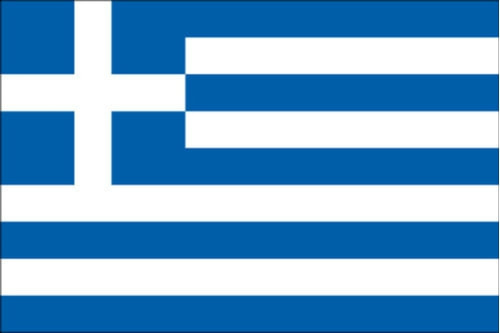23 July 2018
|
| Representatives of the Greek refrigeration and air conditioning industry have written to their government over concerns surrounding the illegal trafficking of fluorinated refrigerants. It is not the first time that Greece has experienced problems with illegal imports and the industry believes soaring prices are leading to an escalation of the trade through its borders, with the impact potentially felt throughout Europe. |
The letter was sent on behalf of bottlers, importers, traders and distributors who say they are responsible for more than 95% of the demand for liquid refrigerants on the Greek market.
It says: "...given that the market of fluorinated refrigerants is changing and adjusting to the initial bans that will come into effect in 2020 (for refrigerants with GWP > 2500) and gradual quantative adjustment until 2030 (for refrigerants with GWP > 149) we estimate that the current stocks that will have to be replaced with lower GWP on the Greek Territory exceed 100,000,000kg. As a result of the gradual ban and adjustment, and due to the quota imposed in the EU, the prices of refrigerants have risen sharply (a phenomenon which, according to the EU, was expected and deseired).
"As a consequence, certain unscrupulous operators are taking advantage of this fact and are about to or have already illegally imported fluorinated refrigerants in refillable or even disposable containers (which have been banned for the last 11 years...)''
The group adds: "Illegal trafficking is done by various means: commercial lorries that transport large quantities and large numbers of containers, refrigerated lorries with hidden containers, lorries where the containers are hidden under the recyclkable materials being transported, commercial vehicles transporting a few containers with the claim that they are for owner's use, prefab cold stores with containers, small boats that transport small quantities daily, passenger cars with containers in the boot etc.''
In addition to the economic impact, which the group estimates at EUR 20m to the Greek state in lost VAT and taxes, the letter also highlights the potential threat to the environment and public health from the uncontrolled circulation of refrigerants.
It says: "...given that the market of fluorinated refrigerants is changing and adjusting to the initial bans that will come into effect in 2020 (for refrigerants with GWP > 2500) and gradual quantative adjustment until 2030 (for refrigerants with GWP > 149) we estimate that the current stocks that will have to be replaced with lower GWP on the Greek Territory exceed 100,000,000kg. As a result of the gradual ban and adjustment, and due to the quota imposed in the EU, the prices of refrigerants have risen sharply (a phenomenon which, according to the EU, was expected and deseired).
"As a consequence, certain unscrupulous operators are taking advantage of this fact and are about to or have already illegally imported fluorinated refrigerants in refillable or even disposable containers (which have been banned for the last 11 years...)''
The group adds: "Illegal trafficking is done by various means: commercial lorries that transport large quantities and large numbers of containers, refrigerated lorries with hidden containers, lorries where the containers are hidden under the recyclkable materials being transported, commercial vehicles transporting a few containers with the claim that they are for owner's use, prefab cold stores with containers, small boats that transport small quantities daily, passenger cars with containers in the boot etc.''
In addition to the economic impact, which the group estimates at EUR 20m to the Greek state in lost VAT and taxes, the letter also highlights the potential threat to the environment and public health from the uncontrolled circulation of refrigerants.
Content continues after advertisements








